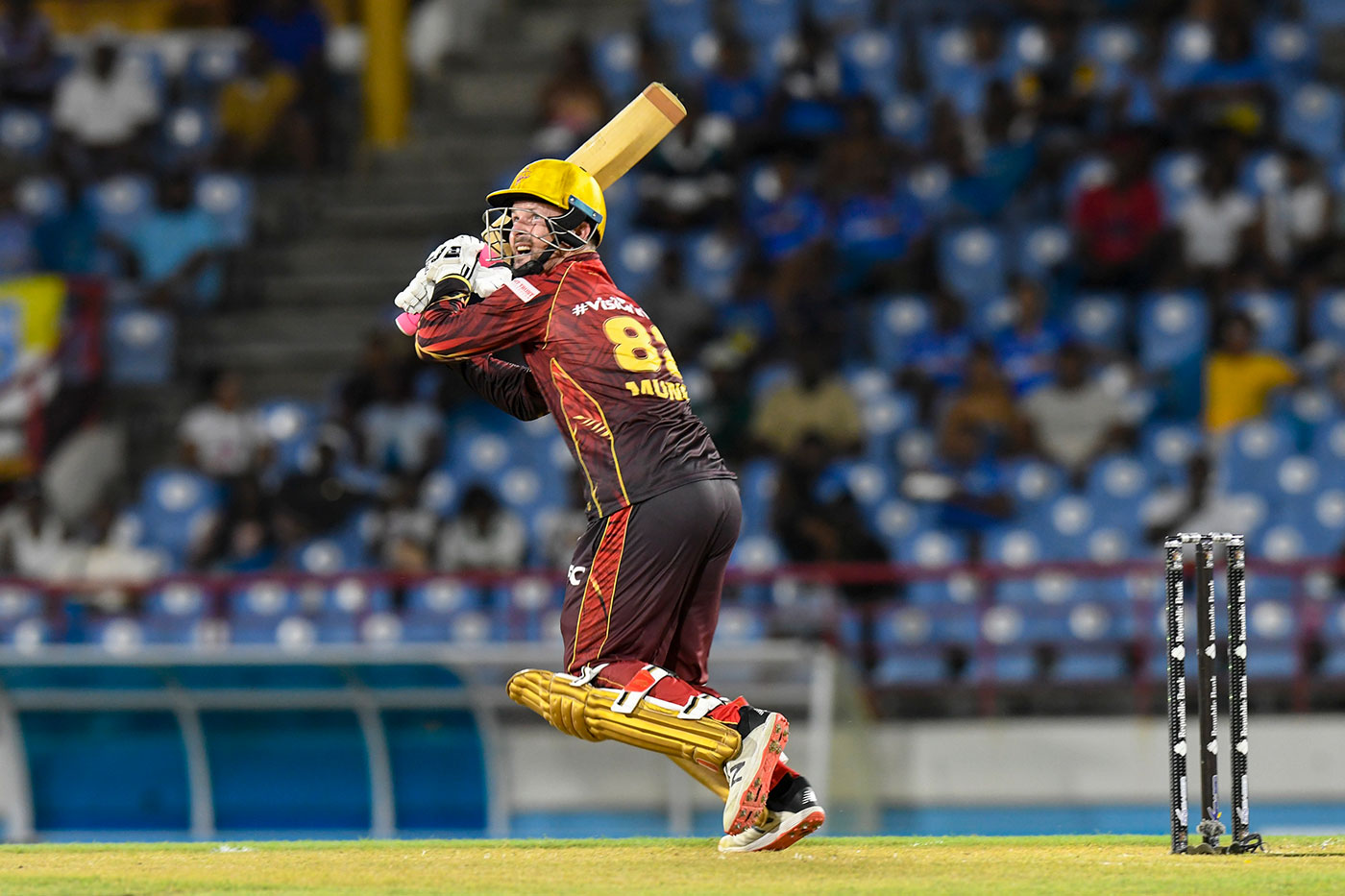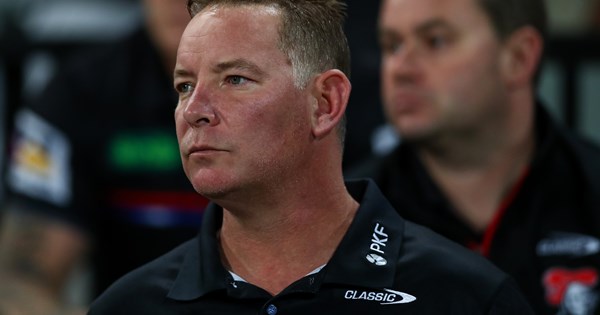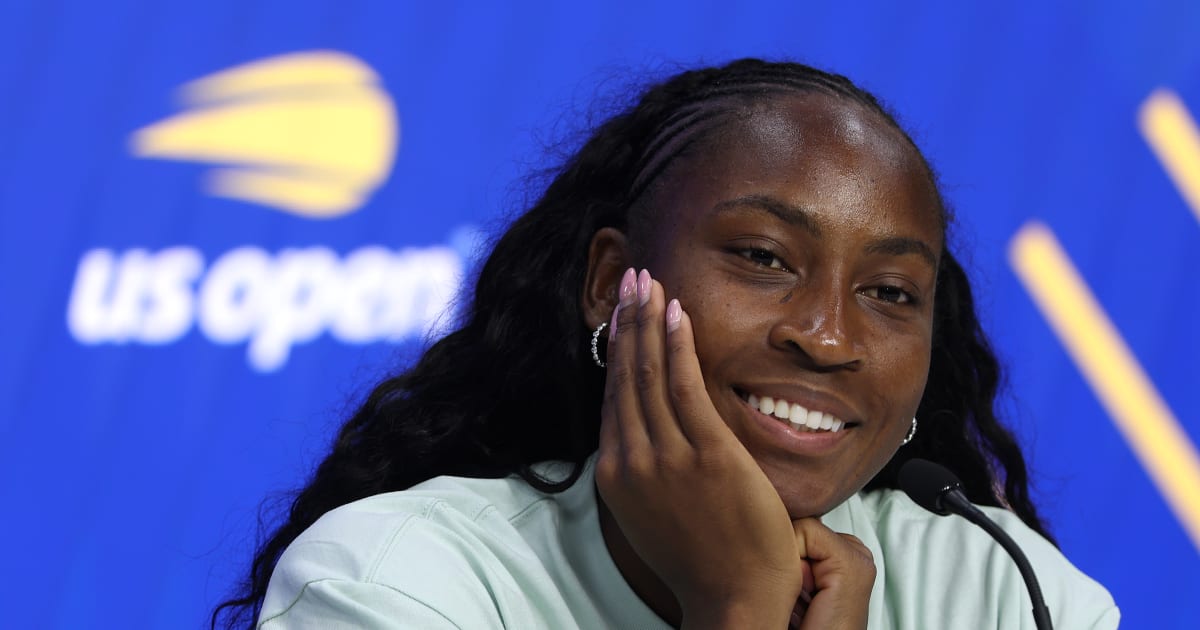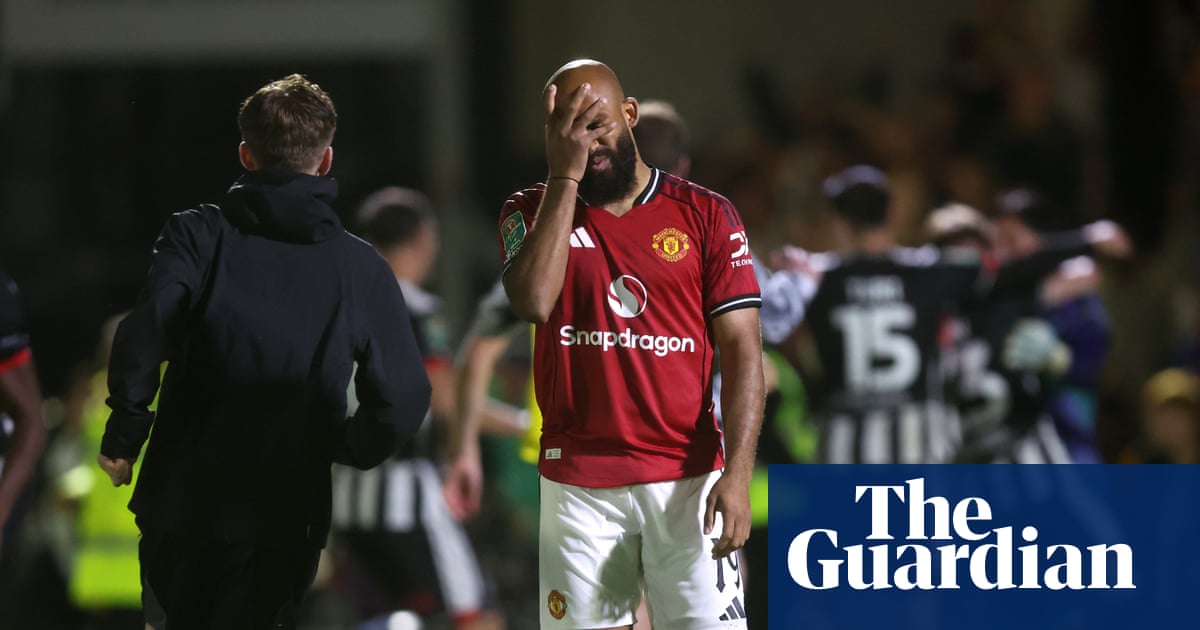Colin Munro: 'If you score, you score. If you don't, it's not the end of the world'

Colin Munro is the most prolific scorer among overseas players in the CPL, with 2560 runs in 82 innings at a strike rate of 132.5. Earlier in his career, success in the league paved the way for a role at the top for New Zealand in their white-ball sides. Munro has also enjoyed success in other franchise tournaments around the world after becoming a T20 freelancer. The only New Zealander with 10,000 or more runs in T20 cricket, he talks about how the format has gone from strength to strength, the challenges of being a short-format globetrotter, his trademark switch-hit, the value of experience in the format, and more.You enjoyed a triumphant return to Trinbago Knight Riders, smashing 120 off 57 balls. How special was that after missing the 2024 season?I felt like I haven't been in the CPL for a few years, and I wanted to try and prove a point. And I think it was just a relief that I can still score runs, even in this part of the world, where batting has been a little bit difficult. But yeah, just to get a score and start the game well, I thought, and start the tournament well…It's still winter in New Zealand. How did you prepare for the CPL?Well, it has been really cold and miserable back in New Zealand. I've been hitting balls indoors at my local club and down at Saint Kentigern College [in Auckland] with Mark O'Donnell [former Auckland coach, who has also worked in the CPL].Just been doing a little bit of extra work with him, staying present in the moment and not trying to look too far ahead. He always tells me to go out there and just take some balls and get used to it. Even if it's a run-a-ball 20 or 30, you get yourself into the tournament that way. Worked on trying to get into good positions and hit the ball where it needs to go. Didn't look to premeditate too much, because you know you can catch up.Especially in our team, even if I do get a run-a-ball 30, you've got [Alex] Hales at the other end. You've got [Nicholas] Pooran coming in, [Kieron] Pollard, [Andre] Russell, [Darren] Bravo and Keacy Carty - players around you that can hit the ball out of the park too. So it's not always my role to go out there and be aggressive. But if it's my day, it's my day."Because [the Caribbean] is a hard place to bat, that expectation is not always there to score runs all the time and be consistent. I think that's what has helped me"You made 120 against St Kitts and Nevis Patriots on the 17th, and you celebrated it with a range of emotions. What did it mean to you?For me, it was just relief. Obviously, I really enjoyed five or six years with Trinidad, and when it ended, I felt like I still had a bit more to offer to the franchise. But then again, it's not just that. I haven't scored a hundred in three years [since December 2021] I think, and I know I'm getting older. So every time you get out in the eighties or the nineties, or you get a not-out in the nineties, you're like: "Is there ever going to be another chance to get another hundred and feel that feeling again?"I said "frustration" [post-match], but I think it was taken out of context. I think it was more just a relief. You know, I don't usually over-celebrate. I went a little bit over the top there, but I think it was just more relief. Obviously, really nice to have my wife in the crowd too, because she doesn't always get to watch when I'm on the road.What's the secret behind being the most successful overseas batter in the CPL, where conditions across islands are challenging?I've been asked that question quite a fair bit over the years, and I wish I knew [the answer] because I could take that into other tournaments! I think it's sometimes about feeling very comfortable in your environment; that's a big thing. I've been in the same franchise for a number of years. So it's not like coming and trying to reinvent the wheel and try to show people what I can do.I think when I go to new teams or teams where I haven't been there for a long time and I haven't performed as well, I put that high expectation on myself. And I think other people around also expect me to go and do stuff. So I think it's just coming into an environment where you can just be yourself and don't expect too much. Because as soon as you put expectations on yourself, that's where I'll go really, really badly. It's just about taking each game as I can, trying to stay in the present, just keep working on my processes.It sounds very clichéd, but it's what I've been doing in the last three or four years, and it's been working really well for me. I wish I knew exactly what made me successful here that I could take to other places. But yeah, I think because it's a hard place to bat, that expectation is not always there to score runs all the time and be consistent. I think that's what has helped me in the Caribbean.Play 04:23 Play 04:23 Colin Munro: 'I've always thought of myself as a leader'During that hundred, when left-arm wristspinner Waqar Salamkheil came on, you countered him with the switch hit. The switch hit and the reverse hit have been your trick shots for a number of years. You used to be called "turtle" because you used to naturally stay low. So did the switch hit come to you naturally?Yeah, I think, for me, the switch hit came naturally. I remember it was in a trial game for Auckland and it [the pitch] was spinning square. So I turned around and the ball went for four and the next one went for six, and the next went for four. And it happened without me even training for it. It was a natural progression to try and play [the switch hit].Glenn Maxwell does it against pacers too, and everyone does it against different types of bowlers. It's sort of become a natural shot now for everybody. I think Andre Adams used to call me the turtle (laughs), which was quite funny, especially with the way I stood [low] as well. Over the years, I'm not much of the turtle anymore and I'm something else, but I'll have to wait on that one.You batted at No. 11 on your first-class debut but have transformed yourself into one of the most destructive openers in T20 cricket. How did that evolution happen?It was a strange one. When I grew up in South Africa, I was a No. 3 or No. 4 batter and I used to open the bowling or bowl first-change. I used to think I was a bowler, but I was never fast (laughs). And then when I got to New Zealand, my bowling sort of took over. I was a hit-the-pitch sort of a bowler who can nibble it around a little bit.I got pushed down the order to No. 7 or No. 8 and when I made my first-class debut, I batted at No.11. I put my batting on the side burner a little bit because I was playing more as a bowler. Even at club cricket, when you got that opportunity at No. 8 or 9, you sort of batted like an eight or nine because you hadn't batted. You're like: "Oh! It doesn't matter if I get out or get runs.""At the end of the day, it's a job. If I can enjoy it, then it doesn't feel like a job and you're out there doing what you want to do. I understood cricket doesn't define me as a person"Then I changed clubs and went to Papatoetoe cricket club, under Matt Horne, where I worked really hard on my batting with him for two years. I batted at No. 3 or No. 4 and scored a lot of runs. When I was No. 7 for Auckland, obviously there was a left-right combination there. I think I got my first opportunity here in Trinidad to go and bat at No. 3 and I did a good job. When I went home, Kane Williamson was asking me whether I wanted to bat up at the top when Baz [Brendon McCullum] left. Yeah, that was what I wanted.Kane would open with Guppy [Martin Guptill], and then he thought about going to No. 3 and myself opened with Guppy. That's the journey that's taken me to get to where I'm at now, but I don't mind batting in the middle order as well. I've done it in the Hundred [for Trent Rockets] a couple of years ago, but I definitely prefer up top.Playing T20 cricket around the world has helped you rekindle some old friendships. Like you combined with Guptill again at Islamabad United in the PSL, and here at TKR you've reunited with Pollard, Bravo and Russell.Yeah, I think that's the fantastic thing about being a franchise cricketer. You get to play around the world with different cricketers and make friendships along the way. Even if you're in a team where you might not get on well with a lot of those players, you always get other teams in the hotels that you're staying at.Obviously, nine times out of ten, you get on with most of the players in your team, but it's nice to see familiar faces. Like, you come to the CPL, first game, you see Rilee Rossouw, and in the next game you can catch up with a few of the boys in Antigua, like Bevon Jacobs. It's always nice to see some Kiwi boys that I haven't seen for a while as well."If people say Munners is an honest person at the end of my career and a good person because he was honest, then great" Albert Perez / © Getty ImagesAs for batting with Guppy, we hadn't batted with each other for a number of years. So, that was really nice in Islamabad [the two opened the batting for title winners Islamabad United in the 2024 PSL final]. We obviously complement each other well, with the left-right combination. One's quite tall, the other a little bit shorter. So yeah, it's always nice to bat with Guppy, and like I said, we're fortunate enough to do what we do, travel around the world and make some friendships along the way.On a podcast with New Zealand and Netherlands allrounder Logan van Beek, you said that you were so bogged down by pressure in 2018 that you fell out of love with cricket. How did you overcome that and start enjoying the game again?I think it was just [about] coming back to the drawing board and playing the game for the right reasons. I think around 2018-19, I was probably trying to play for the money and that got to me a little bit - being a platinum pick or a diamond pick, the highest one, in the PSL that year. I thought I had to try and win every game, and that expectation really weighed me down a lot.And if I didn't do that, then [I felt] I wasn't worthy of the price tag. But it was just maybe putting that aside and trying to play for enjoyment once again, trying to get that love back, that love when you played club cricket and enjoyed it and being around good people. I shifted the whole mindset to: if you score, you score runs. If you don't, it's not the end of the world. I tried to stay nice and level. You obviously get a bit down when you don't score runs as an overseas professional because you want to perform and do well for your team.But I know I've been around long enough that it doesn't always work, so it's just about trying to manage those expectations along the way. I think when I was a little bit younger, I didn't manage those expectations at all."When you hear players that are the ultimate players at the end of their careers saying they still have a lot to learn about the game, you know no one's ever going to clock cricket"Aaron Walsh, a performance and mental skills coach from Auckland, helped you manage those expectations. What was that like?He's been a big sounding board for me. He was working with Auckland and I got talking to him and got a really good friendship, and then it just naturally grew from there.There was one thing he said to me at the end of our first or second conversation. He said: cricket doesn't define you as a person. I was like: What do you mean? That's all I know and that's all I do - go and play cricket. That's how I earn my money. He was like: Yeah, but it doesn't matter. At the end of the day, your mates will still come around for a barbecue, whether you score ten runs in a tournament or 350. Your friends are still going to come around. They might take the piss out of you, but it's all good-natured. You're a father, you're a brother, you're a husband. All those things come before being a cricketer. He told me: this is just the job you do.When you put it in those words, it was like: You know what, it's just a job. Yes, we're very lucky to do what we do, but at the end of the day, it's a job. If I can enjoy it, then it's a better way. It doesn't feel like a job and you're out there doing what you want to do. I understood cricket doesn't define me as a person. That's stuck with me through and through.How do you deal with the hectic lifestyle that comes with being a T20 globetrotter?Well, fortunate enough that I had a young family, so they travelled a lot with me. That has switched me off cricket totally. Often at the pool, going to do day trips or getting out of the hotel, making sure that the kids are well looked after. They're a bit older now, so it's getting a bit more tricky because I'm not a huge golfer. A lot of the boys go out and play a lot of golf.I've still got to keep my mind a little bit active during the day, and especially in those night games - those days are long. You don't want to just sit there and get a little bit anxious about the performance and what's coming up. So I've started reading a little bit more. I'm a huge one on routines, trying to keep it the same the whole time. If I feel like I'm doing that really well, it puts me in a good space mentally and physically, and then I can just go out there and play the game. The last thing I want to do is sit in my room all day and start thinking about: oh, coming up against this bowler, he's got this, he's got these deliveries, I haven't faced him before. [If] you do that for three-four hours in the afternoon, have your sleep and go to the ground, you're mentally cooked already. So it's about trying to stay nice and fresh.Munro (centre) has captained Brisbane Heat in 11 matches across two BBL seasons, winning seven of those James Worsfold / © Getty ImagesI've started playing a little bit more golf these days. I will get out a little bit. I've got Alex Hales here, who's obviously the golfer, and Ottis Gibson [TKR assistant coach]. We're in a great place in the Caribbean, where you can sit at the pool or beach, enjoy the sunshine, send some photos back home and rub it into the people that are shivering and being cold on the couch back home in New Zealand (laughs).You're among the most experienced T20 players in the world right now and you have also captained teams in various franchise tournaments. Did you see yourself as a leader?Yeah, I always thought of myself as a leader, because I was a captain in South Africa when I was younger. But moving to New Zealand, I got a little selfish and just worried about my own [batting] performance.Every time you go into a new environment, when you're a bit younger, you don't want to say the wrong things, so you keep quiet. And I don't think people saw the leadership qualities in me. The older I got and the more I'd been around the likes of Brendon McCullum, [Dwayne] Bravo and Kane Williamson, and some of the captains I've played with, and coaches as well, I saw how they went about things and expected things from players.You pick up all the good little things from those guys. And I sort of moulded that into the leader I am. I'm not saying I'm a great leader or a bad leader - it's just who I am. I'll be open and honest with people. I might hurt somebody's feelings, but it comes from a good place because I want that person to get better.I think people that know me know that I'm really genuine and want people to get better and we can have those tough conversations that sometimes need to happen. As long as I'm open and honest with people around me, that's all. If people say Munners is an honest person at the end of my career and a good person because he was honest, then great. I don't want somebody to go: oh, Munners beat around the bush." I can just see that maybe in five or ten or 15 years' time, players are going to make a serious living out of playing T20 cricket"Did you feel like you became a T20 specialist when you were in your prime and the format was booming?Yeah, I was quite fortunate in the way that I started. But it definitely was not an easy decision. I was still playing for New Zealand, and even though I was told "We will work with you", unfortunately it didn't end that way. Once I left, there were talks of: "Munners is a mercenary doing his T20 franchise stuff", and unfortunately, I didn't get to play for New Zealand again.That was probably the hardest part for me: choosing which way I wanted to go. But yeah, I think T20 cricket is only going to get bigger and bigger. It's huge already.There's so much cricket. I'm not too sure about the T10s, to be honest, but T20 definitely is huge. I think New Zealand is the only place that doesn't have a big league. Yes, the standard of cricket is really good, but not many look at it because some of the Black Caps are not playing and we don't have the overseas players playing.I don't know how they can make that product any better. I think only Finn Allen has sort of gone on from there to play IPL and things like that. If we can have a bit of an avenue, sort of like what the CPL has now for people going into the IPL. People are watching this tournament, so the young West Indian boys are trying to put their hand up so that they can get picked in some of the other leagues. I think T20 is going to grow.I don't know how international cricket and the T20 leagues can [co-exist]. Yeah, that's over my head. I've got no idea. As long as there's cricket out there that everybody can play, whether they play international cricket or franchise cricket, it's in a good spot.When you made your T20 debut back in 2010, was it really a different sport?All I wanted to do was play for Auckland. There was no... not even the Black Caps [ambitions] or anything. It was just literally focusing on playing club cricket and going to trial for the Auckland team and doing my best there. I can't even remember what the state of T20 cricket was!Munro bats with Kieron Pollard in the CPL: "We're fortunate enough to do what we do, travel around the world and make some friendships along the way" Randy Brooks / © CPL T20/Getty ImagesThere was the first IPL when Baz got 158 in 2008. So T20 was just kicking off. Who knew it was going to be as big as it is right now! And you see the Hundred getting privatised, and BBL looks like they want to try and privatise it, so it's only going to get bigger and bigger. And the players around the world, when you look at NBA, NFL, all those sorts of big, big leagues, you know, those boys, especially top boys, are getting good money. So I can just see that maybe in five or ten or 15 years' time, players are going to make a serious living out of playing T20 cricket.When you became a T20 freelancer, your New Zealand future appeared uncertain, but do you think the management is now doing a better job of handling their players in the changing landscape, especially after NZC invested in Major League Cricket in the United States?I think their hand was forced. When you've got Trent Boult, Tim Southee, [Devon] Conway, Williamson, Daryl Mitchell, Glenn Phillips, Lockie Ferguson, Adam Milne - if you take those players out of any format of the game, New Zealand Cricket wouldn't be where they're at in terms of performances over the last 24 months.Matt Henry may probably go down that path because he's one of the best multi-format bowlers in the world at the moment, so he's going to get picked up everywhere now.New Zealand cricket can't afford to hold on to those players and just say, listen, you're just playing for New Zealand. You can go to the IPL because the IPL is obviously the pinnacle and that's where guys go and play. But then there are other comps that are just as good in terms of time away, which is only a month, and you get decent money.Obviously, when players are at the different stages of their careers, 20 to 26-27, you think about investing in your own game a little bit, playing some four-day cricket and actually really knowing your game. And then New Zealand Cricket have to allow casual playing contracts and let the players go and play. That frees up some players too. When they come back and play for New Zealand, I'm not saying they're mentally fresh, but they'll go: man, my employers really tried to help me out there. I think that they're very lucky that they can play international cricket and franchise cricket simultaneously. It's a good place to be now."I'm a huge one on routines, trying to keep it the same the whole time. If I feel like I'm doing that really well, it puts me in a good space mentally and physically, and then I can just go out there and play the game"This TKR team has five over-35 stalwarts - Hales, yourself, Sunil Narine, Pollard and Russell - who have been there and done that in T20 leagues around the world. What is the value of experience in T20 cricket?I said post-match [after TKR's opening game] that there was a Super Smash year when Wellington won it [in 2017]. Everyone was calling them the Dad's Army. You know they had Jeetan Patel, [Luke] Woodcock and Grant Elliott - guys that were 35-plus. I think the youngest player in that team might have been like 23 or 24. Nobody gave them a chance, but they were all experienced.They don't have to be the fittest, the strongest. But every single one of those players has been in some difficult situations in games and got their way through it. So whether they haven't got through it or not, they've been in those situations. Experience. I always thought T20 was a young man's game, especially when I was younger too. I was like: "Oh man, old fellas here." But definitely the older I've got… I'm not going to say the game's got easier, but you've been in positions, good positions, bad positions, as a team and as an individual. So you know how to get out of them a little bit more than when you're 23 and you're like: "Man, I haven't even been here before. This is foreign territory. I don't know what to do here. I'm a bit stuck."You then play a rash shot and get out and then your game's over within five balls or something. Experience is massive. And I think you never stop learning. That's the great thing about this game. I remember reading Imran Tahir saying no matter how good you think you are, there's always somebody out there better than you, and you're always learning.[Mike] Hussey, when he was retiring was like: "I've still got so much to learn in this game, but my body's not letting me play anymore". He's one of the greatest players to ever play the game. When you hear players that are the ultimate players at the end of their careers saying they still have a lot to learn about the game, you know no one's ever going to clock cricket. You see the best players in the world only being successful 30% of the time and that's the guys that are on top of their game.So yeah, experience counts for everything. Even if you're a little bit slower, and your mind still works pretty good, you can get out of those tricky situations.Deivarayan Muthu is a sub-editor at ESPNcricinfo© ESPN Sports Media Ltd.










